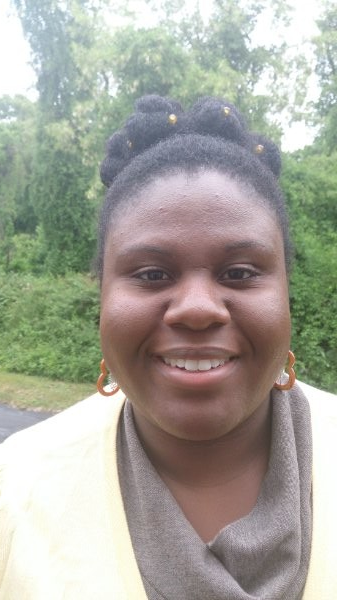Alum Spotlight: Dr. Vanessa Fabien graduated with her BA in Women’s Studies in 2006. She earned a PhD in September 2014 in Afro-American Studies at the University of Massachusetts, Amherst. As a historian, her research focuses on 19th and 20th century African American history and culture with particular emphases on environmental ethics, religion, and gender. She recently completed a Presidential Diversity Postdoctoral Fellowship in the Department of Africana Studies at Brown University and will begin a new position as a Visiting Fellow with the Historic Black Church Program at the University of Miami School of Law’s Center for Ethic and Public Service.

“I credit the Center for being an integral component in my scholarly pursuits to shape the public discourse on race, gender, and the environment as well as inspire young girls and women of color to embark upon a journey towards becoming public intellectuals.”
-Dr. Vanessa Fabien
My research provides scholars and environmental stakeholders with a theoretical and historical framework from which to organize across disciplines and reap the synergistic gains of an integrated approach to addressing and redressing racial, gender, and environmental inequalities. I am completing my manuscript entitled Red, Black, and Green: African American Environmental Thought and the Historical Construction of Environmental Inequality. This manuscript provides a theoretical understanding of African American environmental thought through a historicity that maps the intellectual, cultural, and agricultural production of African Americans during distinct historical periods. Specifically, the manuscript examines how the natural environment inspired African Americans’ resistance against institutionalized slavery, a failed Reconstruction, debt peonage during the Great Depression, and socially engineered ghettoized living conditions spurred by racial restrictive covenants during the 20th century. As a fellow of the op-ed project Public Voices Greenhouse, I published several op-ed pieces on climate change, gun control, lynching, and women’s reproductive health. In my piece “My Body My Pain: Listen to Me and all Black Women” — featured on The Root.com — I discuss the historical misdiagnosis of endometriosis in black women due to the racial bias in how medical providers assess pain in their black female patients.
My BA degree in Women’s Studies in tandem with my experience as a Haitian American woman helps me interpret the history of the U.S. geographical space from a transnational lens and question how race, gender, and class shape the contours of the American terrain. The precipice for my work started in my first semester at UF in summer 2002 when I enrolled in Interdisciplinary Perspectives in Women’s Studies and learned about transnational collaborative grassroots movements among women who fought for social change. Through studying the unique standpoints and epistemologies that undergirded these powerful movements, my interest in African American women’s fight for equality for all emerged. That spring semester, Professor Barolet invited me to give a lecture in this course on how African American women helped shaped the civil rights movement. It was through my research for this lecture, titled “Stories Untold: Black Women’s Political Activism in the Civil Rights Movement,” that I gained a gendered insight into the environmental justice movement.
I credit the CGSWSR for being an integral component in my scholarly pursuits to shape the public discourse on race, gender, and the environment as well as inspire young girls and women of color to embark upon a journey towards becoming public intellectuals.